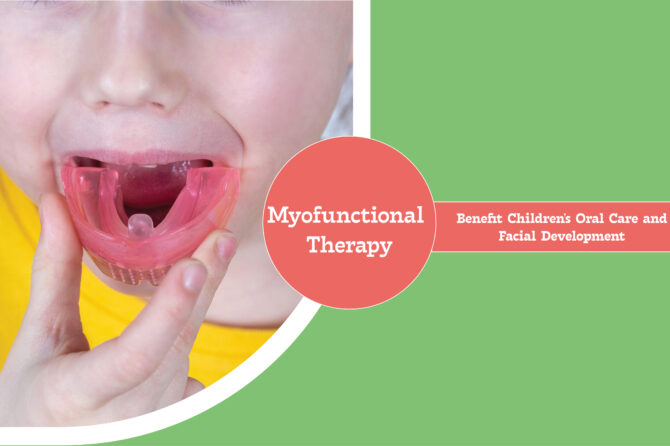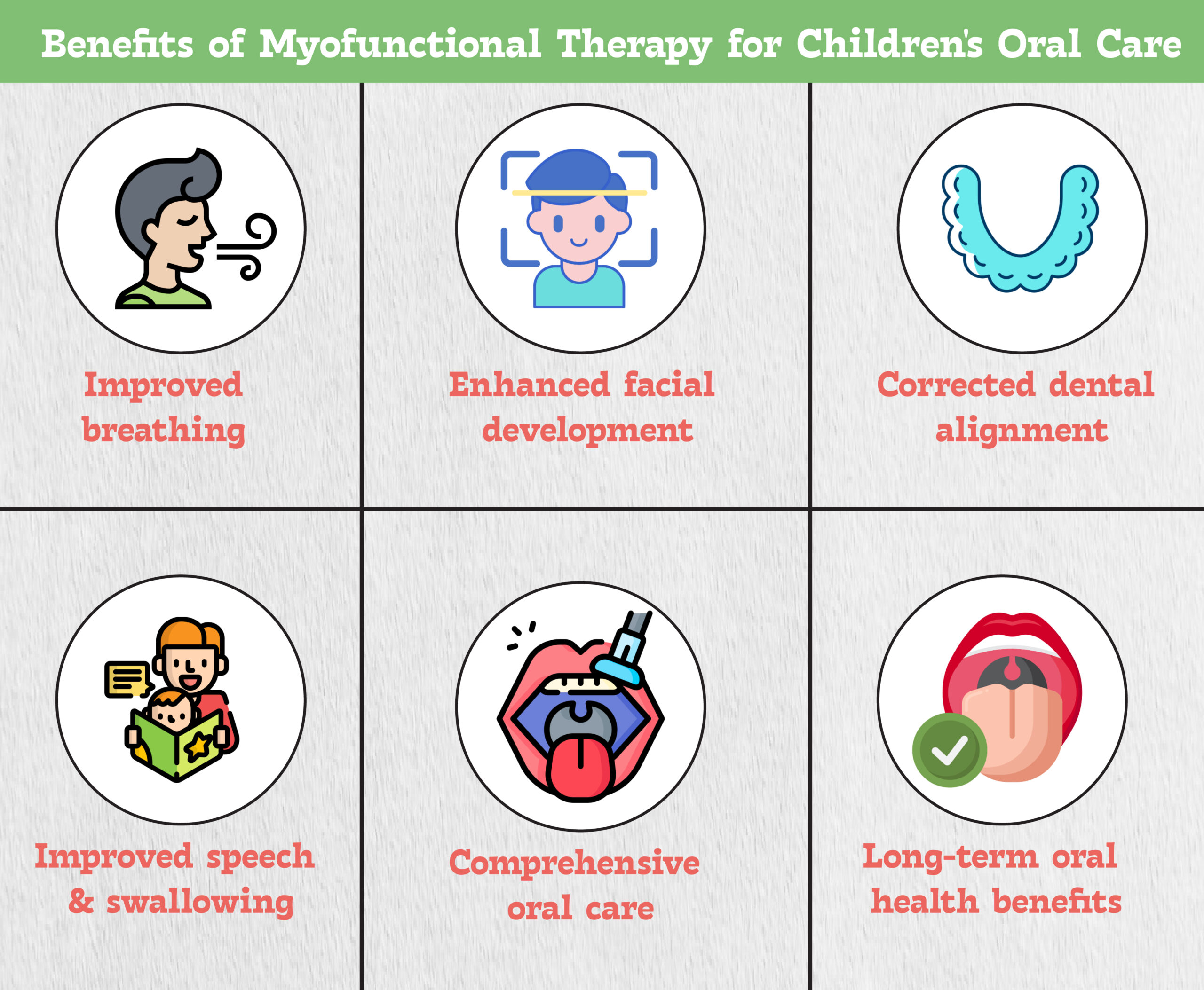
How Does Myofunctional Therapy Benefit Children’s Oral Care and Facial Development?
Myofunctional therapy is rooted in a foundational framework aimed at correcting various aspects of improper oral function, encompassing breathing, swallowing, and tongue posture. This therapeutic approach, which has evolved over time, traces its origins back to notable pioneers and key milestones within the field. Early intervention plays a pivotal role in addressing child oral habits and fostering optimal facial development, emphasizing the significance of incorporating myofunctional therapy into oral care practices, maintaining proper oral hygiene, and administering appropriate dental treatments. By intervening during the formative years, myofunctional therapy establishes a solid groundwork for long-term oral health and overall well-being, ultimately yielding profound benefits throughout an individual’s lifetime.
What are the Common Oral Habits in Children?
Mouth breathing:
- Detrimental effects: Chronic mouth breathing in children can have significant repercussions on their oral health, facial growth, and overall well-being. It can lead to dry mouth, increased risk of cavities, gum disease, and bad breath.
- Impact on facial development: Prolonged mouth breathing can influence facial growth, potentially resulting in a narrow upper jaw, recessed chin, and flattened facial profile.
- Association with health issues: Scientific research suggests that chronic mouth breathing may be linked to respiratory problems, sleep disorders, and decreased oxygen intake, which can have broader implications for a child’s overall health.
Thumb sucking and pacifier use:
- Consequences on dental alignment: Prolonged thumb sucking and pacifier use can exert pressure on developing teeth and jaws, potentially leading to malocclusions, such as an open bite or an overbite.
- Speech development challenges: These habits can impact speech development, causing difficulties in pronunciation, articulation, and overall clarity.
- Facial aesthetic implications: Persistent thumb sucking and pacifier use may contribute to changes in the shape of the palate, leading to potential alterations in facial aesthetics.
Incorrect tongue posture:
- Oral health issues: Improper tongue posture, such as resting the tongue against the front teeth or on the floor of the mouth, can contribute to dental problems, including malocclusion, crowding, and improper alignment of the teeth.
- Impact on speech: Improper tongue posture may also affect speech production, leading to speech difficulties, lisping, or other articulation challenges.
- Myofunctional therapy intervention: Myofunctional therapy can help correct tongue posture through specific exercises and techniques, promoting optimal oral function and mitigating associated oral health and speech issues.
Incorporating myofunctional therapy and addressing these common oral habits in children is essential for comprehensive oral care, maintaining proper oral hygiene, and facilitating appropriate dental treatment. By intervening early and utilizing myofunctional therapy techniques, children can overcome these habits, promote favorable facial development, and establish a foundation for long-term oral health and overall well-being.
Benefits of Myofunctional Therapy for Children’s Oral Care

- Improved breathing: Myofunctional therapy helps children transition from mouth breathing to nasal breathing, promoting optimal oxygenation and reducing the risk of respiratory issues. By addressing improper oral habits, such as chronic mouth breathing, myofunctional therapy enhance overall respiratory function and contributes to better oral and general health.
- Enhanced facial development: Myofunctional therapy plays a crucial role in supporting proper facial growth in children. By promoting correct tongue posture, swallowing patterns, and oral muscle coordination, it helps develop a well-aligned jaw, wide palate, and balanced facial aesthetics. This can have long-lasting effects on a child’s facial structure and overall appearance.
- Corrected dental alignment: Addressing improper oral habits through myofunctional therapy can aid in correcting dental misalignments and malocclusions teeth. By encouraging proper tongue placement, swallowing techniques, and improved oral muscle function, myofunctional therapy assists in aligning the teeth, reducing the need for extensive orthodontic interventions later in life.
- Improved speech and swallowing: Myofunctional therapy can significantly contribute to speech and swallowing improvement in children. By focusing on tongue posture, muscle strength, and coordination, it helps overcome speech impediments, such as lisping or difficulty articulating certain sounds. Additionally, it enhances swallowing function, ensuring efficient oral motor skills for safe and effective food intake.
- Comprehensive oral care: Myofunctional therapy integrates seamlessly with oral care practices, emphasizing the importance of proper oral hygiene and regular dental check-ups. By addressing underlying oral habits, it sets the stage for maintaining healthy teeth and gums, preventing oral health issues such as cavities, gum disease, and other dental complications.
- Long-term oral health benefits: By intervening early and addressing child oral habits through myofunctional therapy, children can establish a solid foundation for long-term oral health. Improved oral habits and proper oral muscle function contribute to reduced risks of oral health problems, promoting a healthier and more sustainable oral environment throughout their lives.
Through the multifaceted benefits it provides, myofunctional therapy revolutionizes children’s oral care. By focusing on correcting oral habits, promoting facial development, and integrating with oral hygiene practices and dental treatment, it offers a holistic approach to ensure optimal oral health and well-being for children, setting them up for a lifetime of healthy smiles.
Conclusion
From improved breathing and enhanced facial development to corrected dental alignment and improved speech and swallowing, myofunctional therapy provides a comprehensive approach to addressing child oral habits. By integrating this therapy with diligent oral care practices and tailored dental treatments, Kids Dental Studio ensures a brighter smile and a healthier future for children.
Leave a reply
